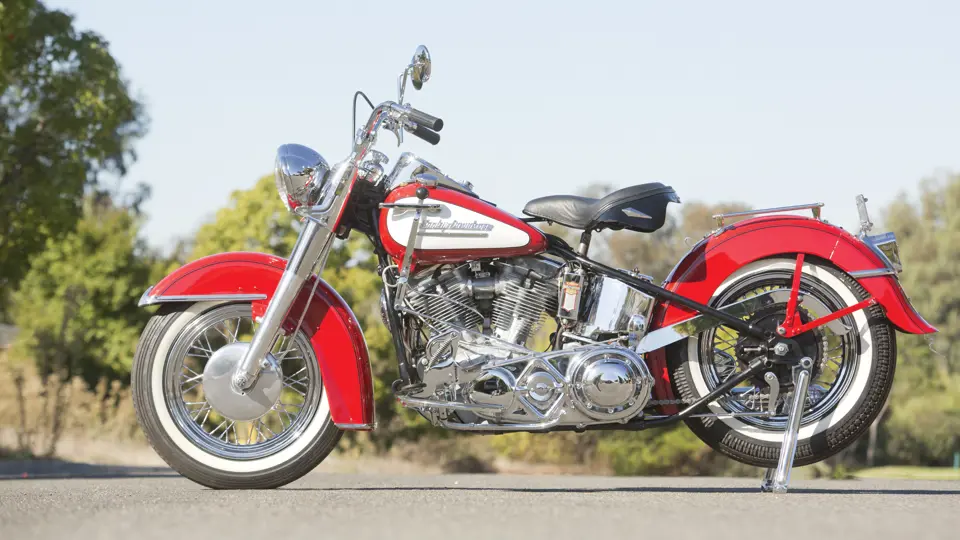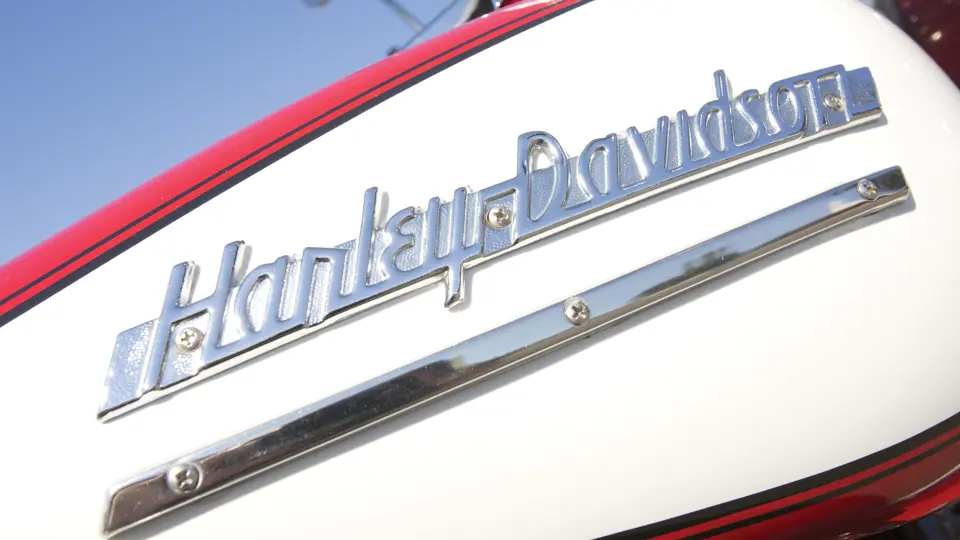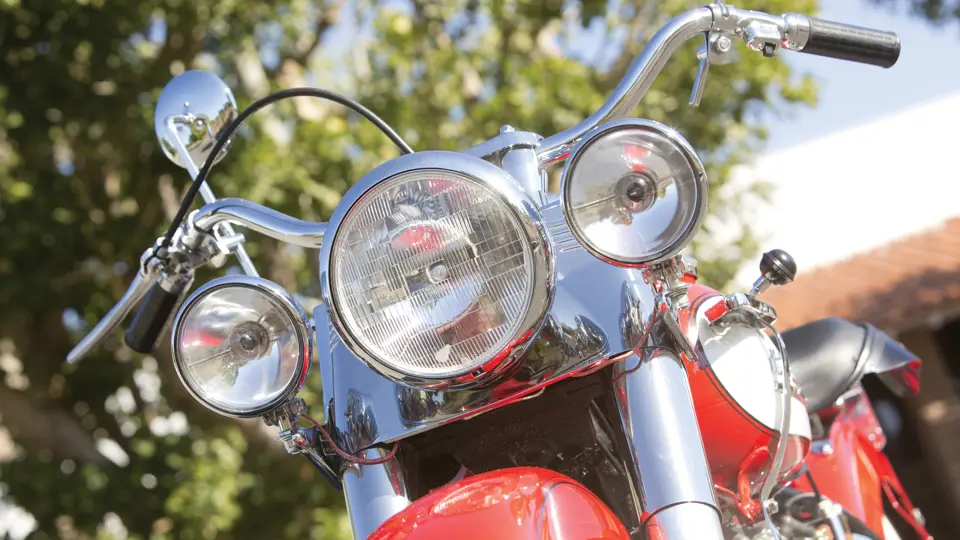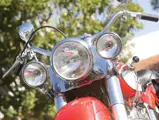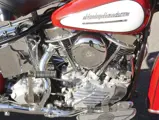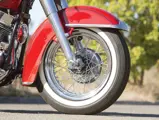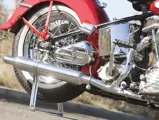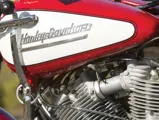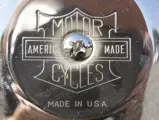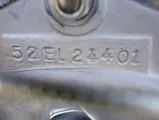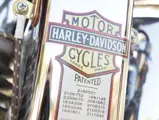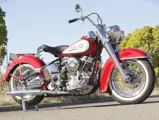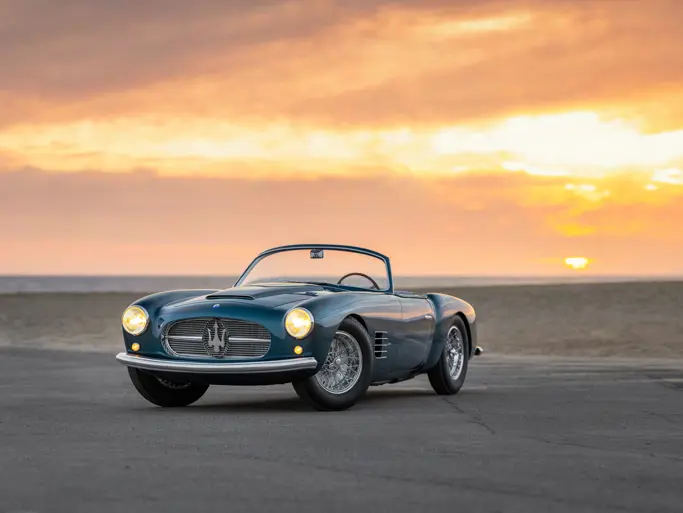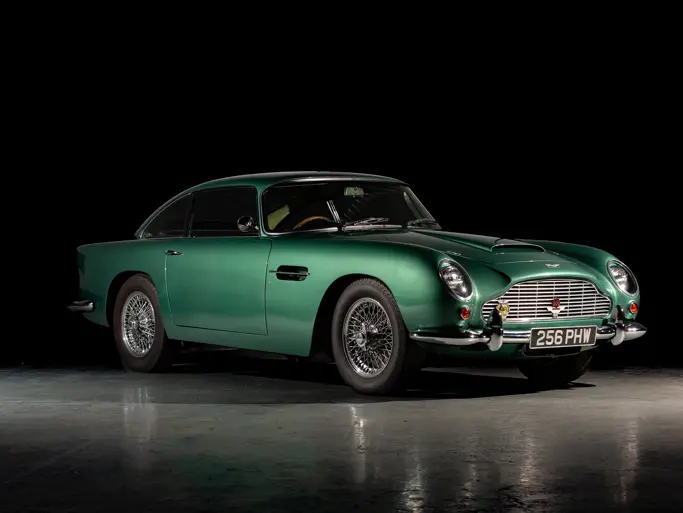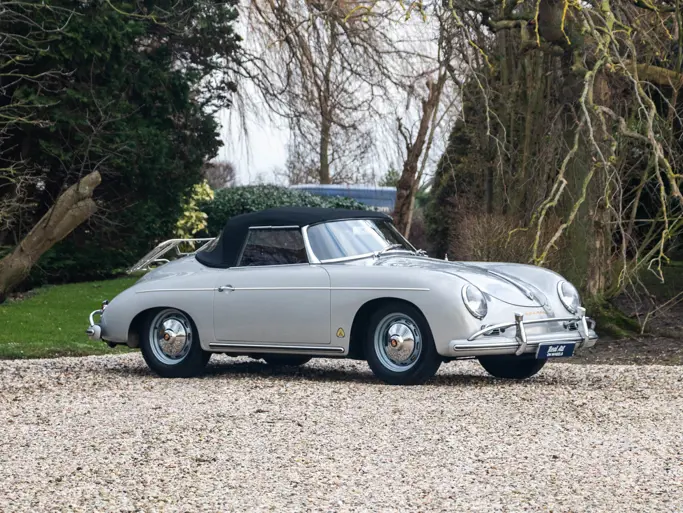55 bhp, 74 cu. in. OHV air-cooled V-twin, fixed-jet Linkert M-54 1.5-inch carburetor, four-speed hand shifter, front telescopic hydraulic forks and rigid rear, and four-wheel drum brakes. Wheelbase: 59.5 in.
Harley-Davidson comprehensively updated the old Knucklehead engine with hydraulically adjusted valves in 1948, creating the much more modern Panhead engine. They elected to let customers get accustomed to that and then waited a year to make more changes.
With the Panhead proven successful, Harley-Davidson reinvented their bike as a showcase around it. The look of the new 1949 E- and F-series models was anchored by huge telescopic hydraulic forks and a completely new front end. Unofficially, these Hydra-Glide forks soon lent their name to the whole line; time would show that these would be the most classic of the Panheads, and they would be the inspiration for countless other motorcycles over the next 60 years, including Harley-Davidson’s own Heritage Softail.
The first major update since the 1949 redesign came in 1952, when the optional hand clutch/foot shift arrangement was added to compete with European motorcycles that used the configuration almost exclusively. By 1953, the foot shifter outsold the hand shifter by a two-to-one margin. In general, Big Twin sales were in a steep decline, as they were off by 20% over the already down year of 1951 and only 5,554 FLs were moving off of the showroom floors. Of those, it is safe to assume that a minority retained the hand shifter, and there are a total of only 162 FLs from 1952 in the Panhead Register.
This highly collectible and easy-riding bike has had a meticulous restoration from renowned FL specialist James Beck. Since its restoration was performed, the FL was test driven for only two miles and then put on display as a show bike example. The Persian Red over white paint is lustrous, and the vast expanses of exposed metal are burnished to a deep glow. Even though it is used as a show bike, Harley-Davidson built the Panhead for the highway, and with preparation, one could see its Hydra-Glide forks work up front, living up to their name, gliding over the road, and proudly informing the world that this is a real American motorcycle.
Even more than its low production numbers, it is the retro period styling that makes a Panhead collectible today, and features such as the unique and distinctive hand shifter only add to this Panhead’s collectability. Even today, when one thinks of Harley-Davidson, the classic style of the FL Hydra-Glide comes to mind.

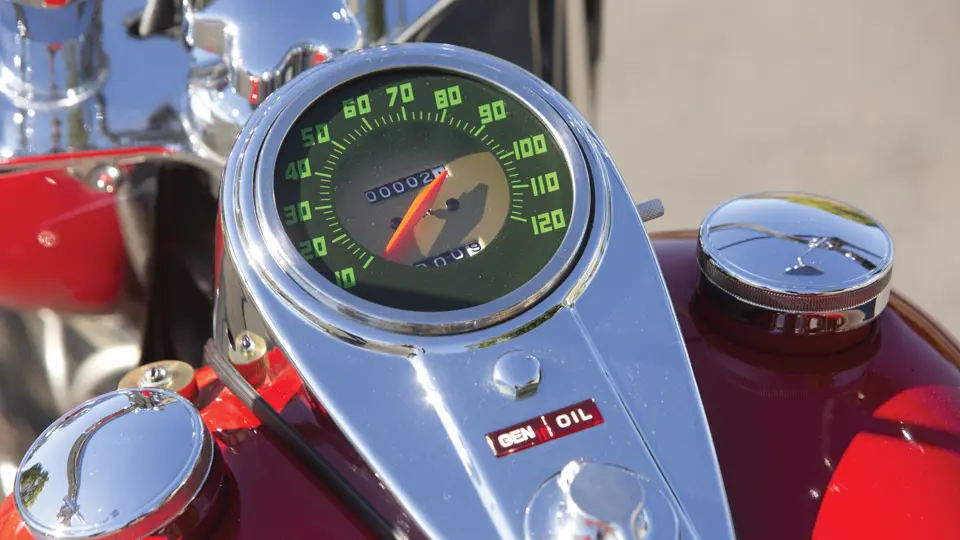
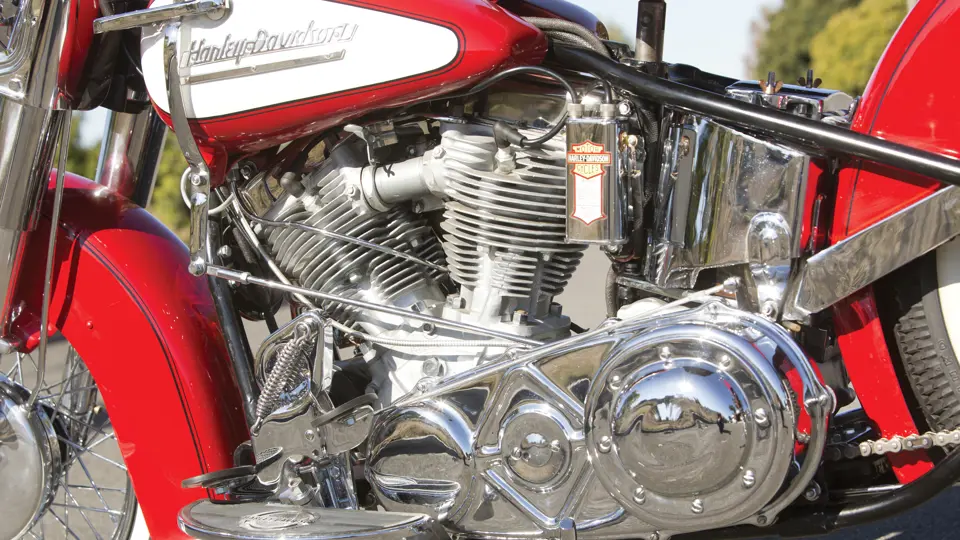

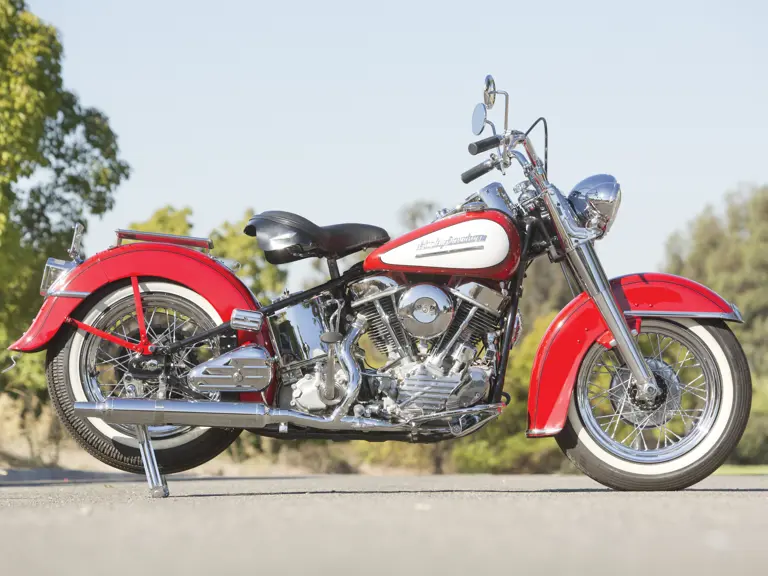
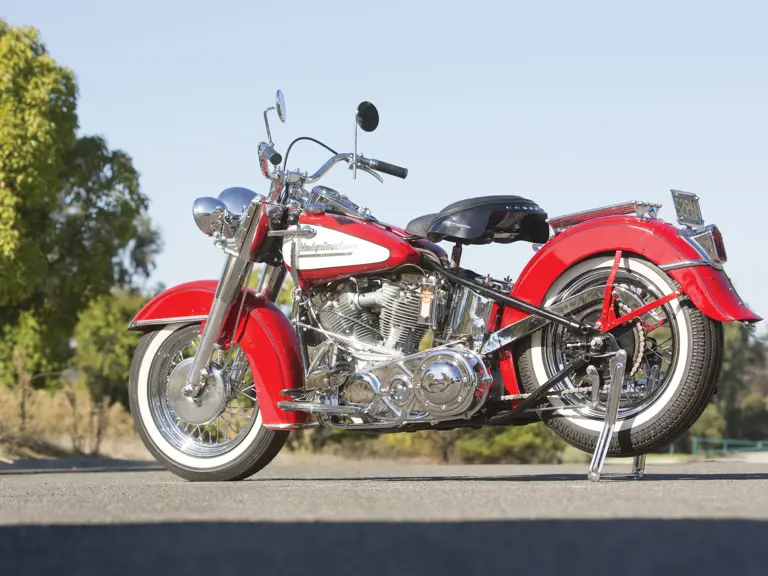
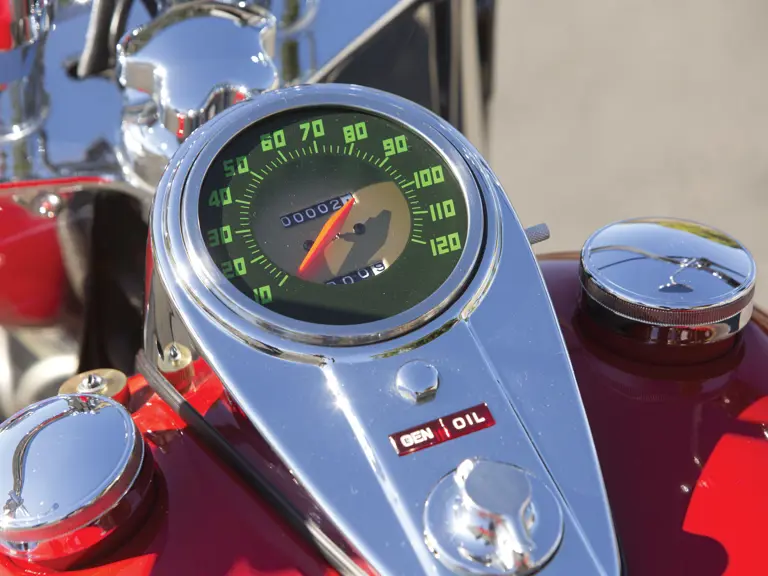
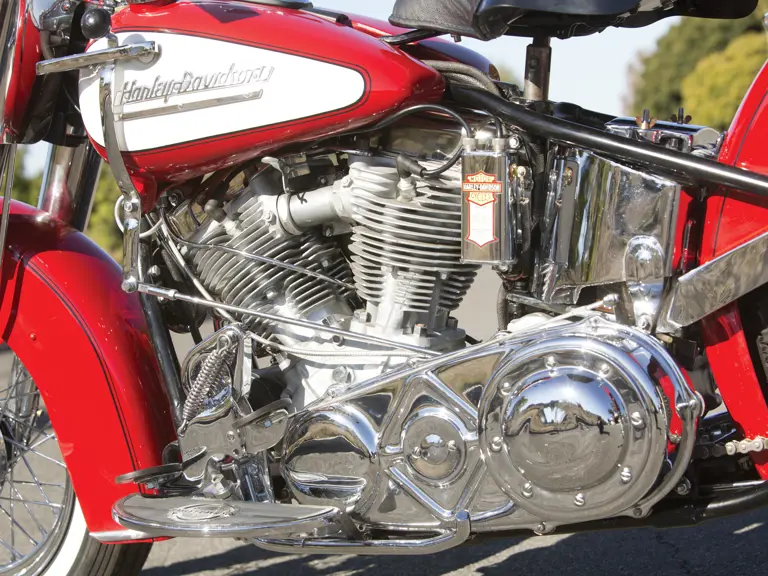

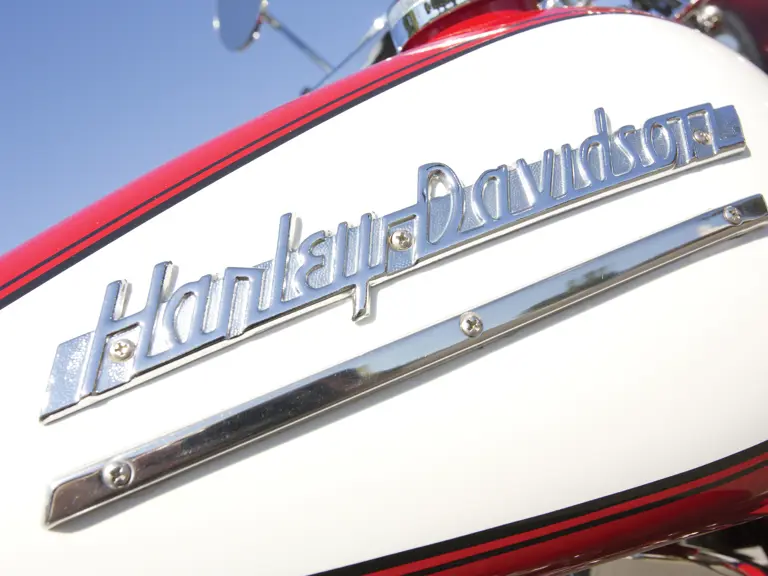
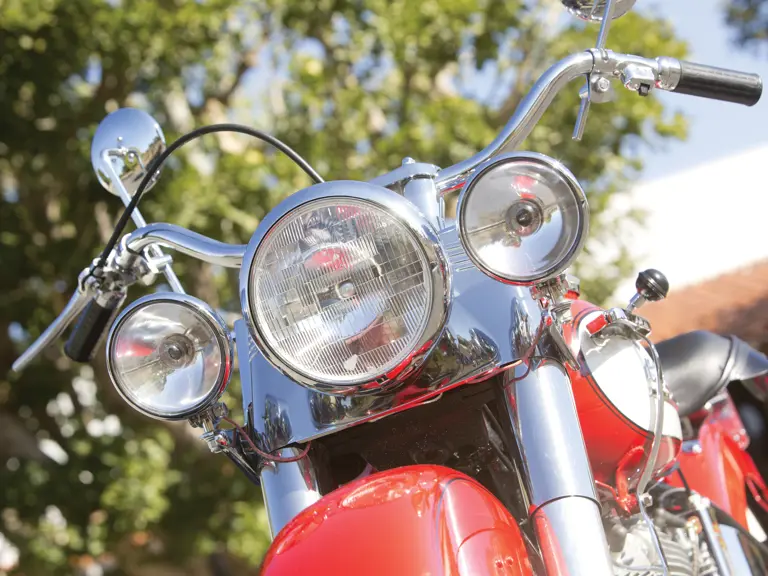
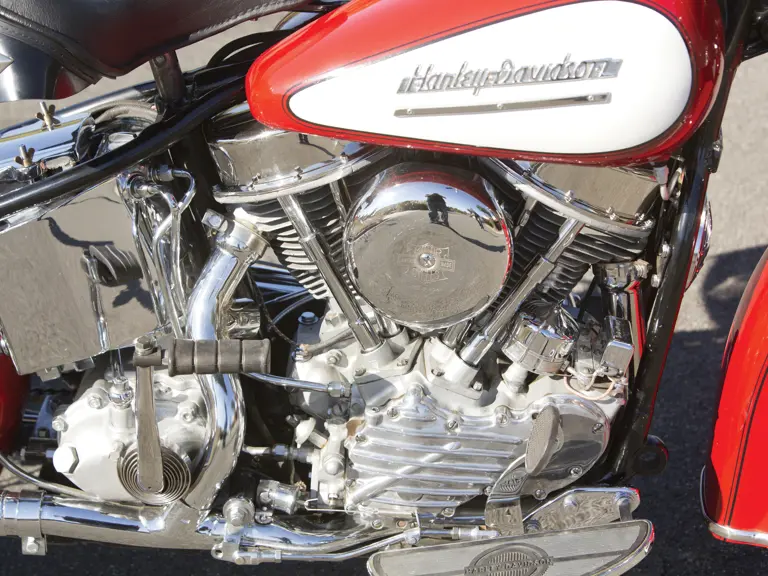

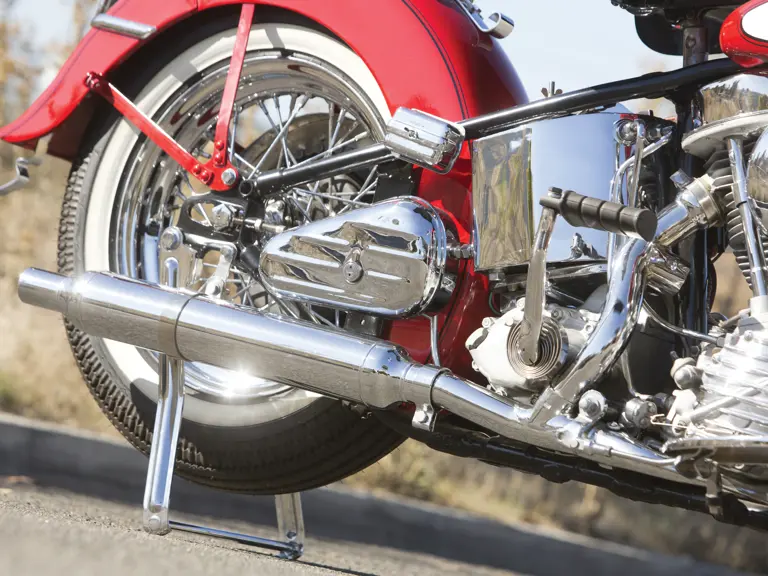
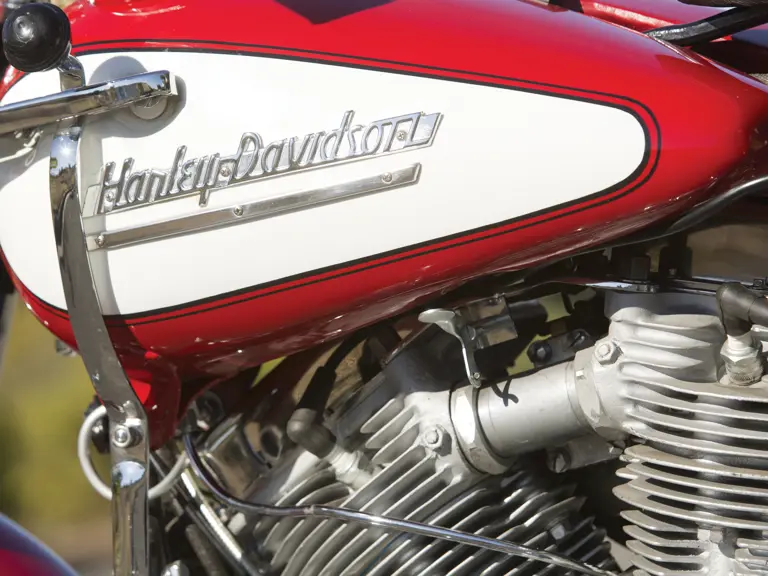
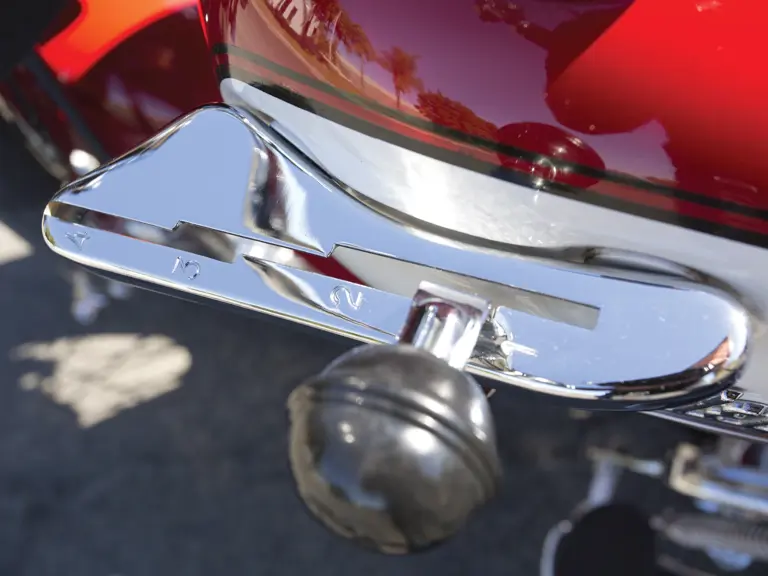
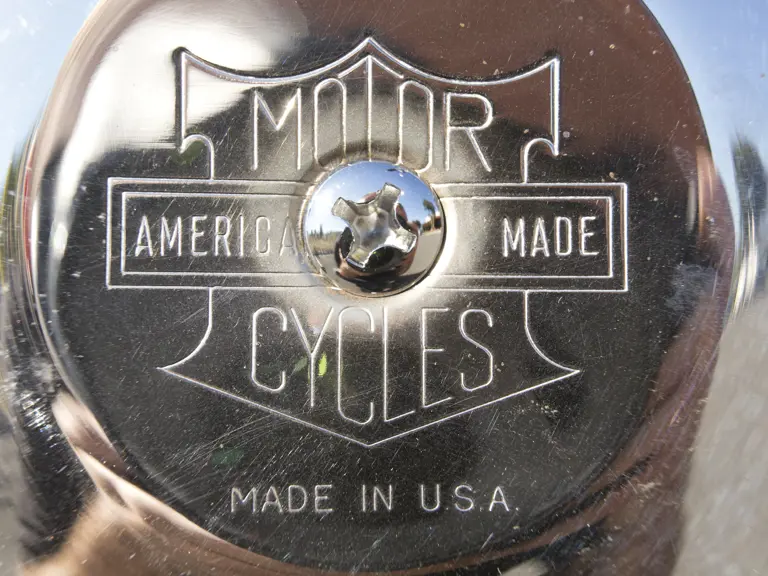
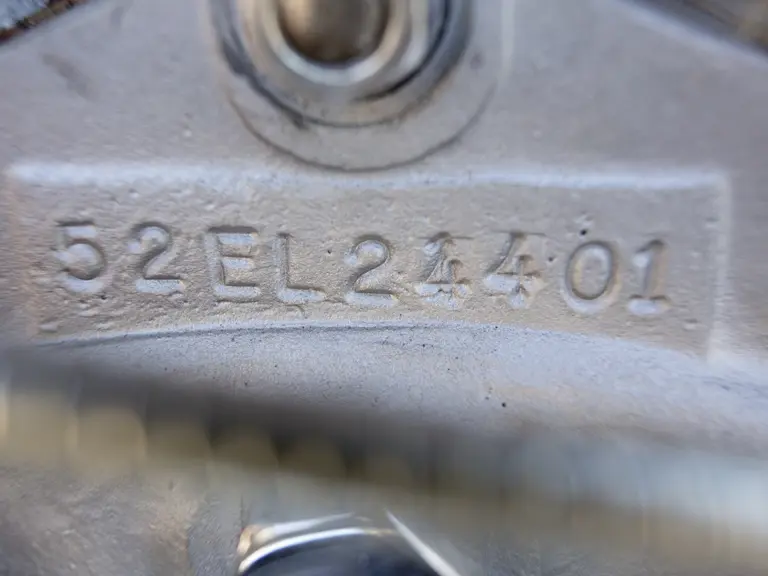
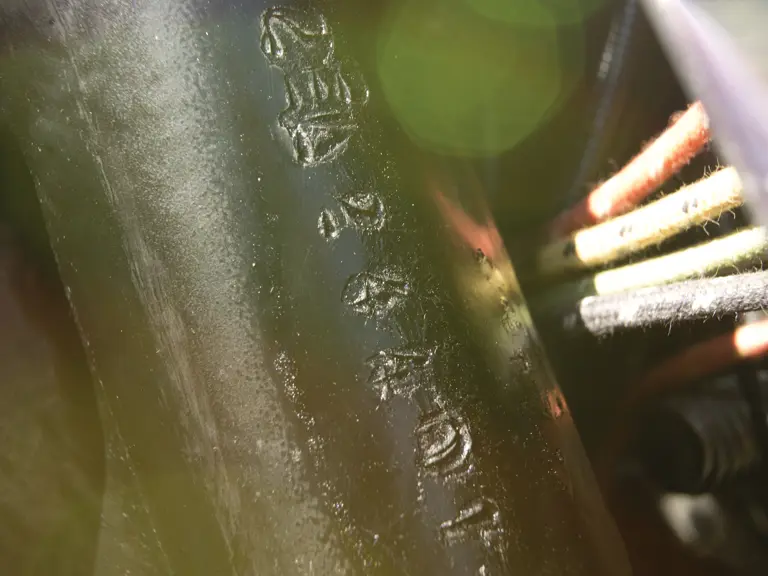
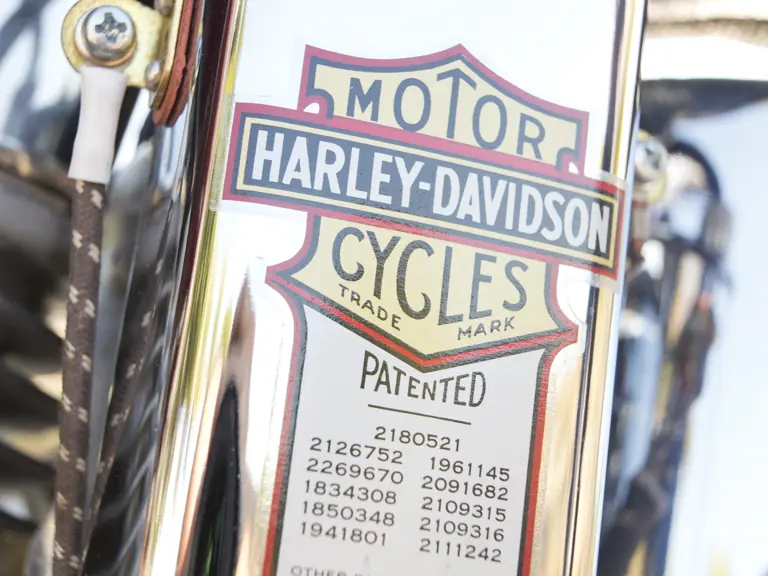
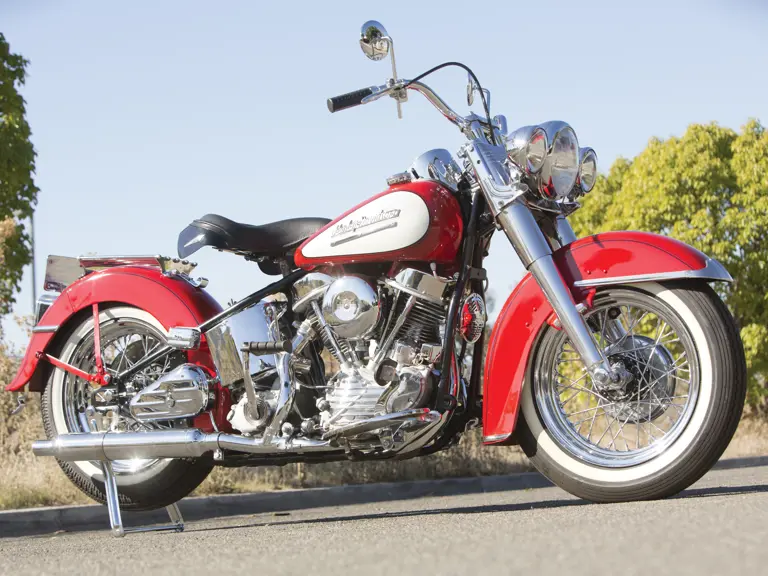
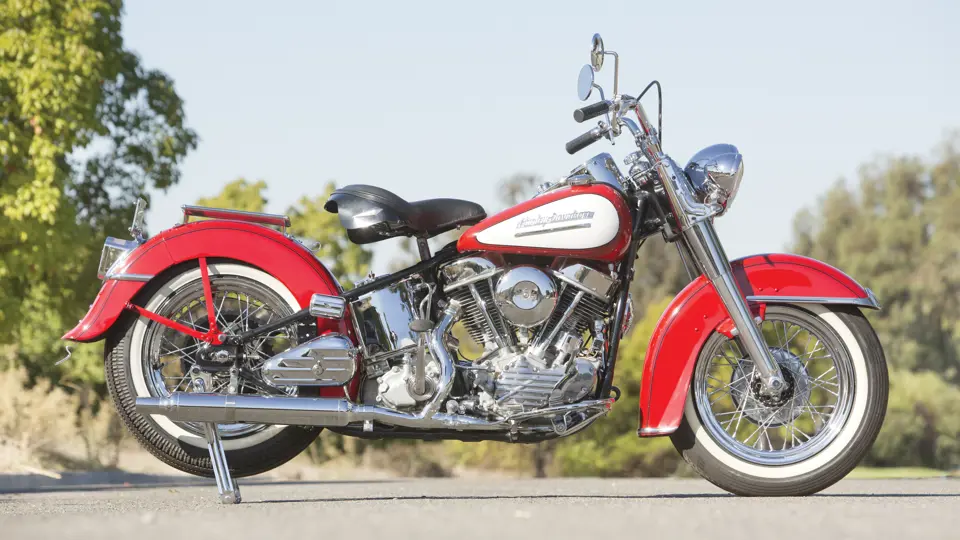
 | Phoenix, Arizona
| Phoenix, Arizona
